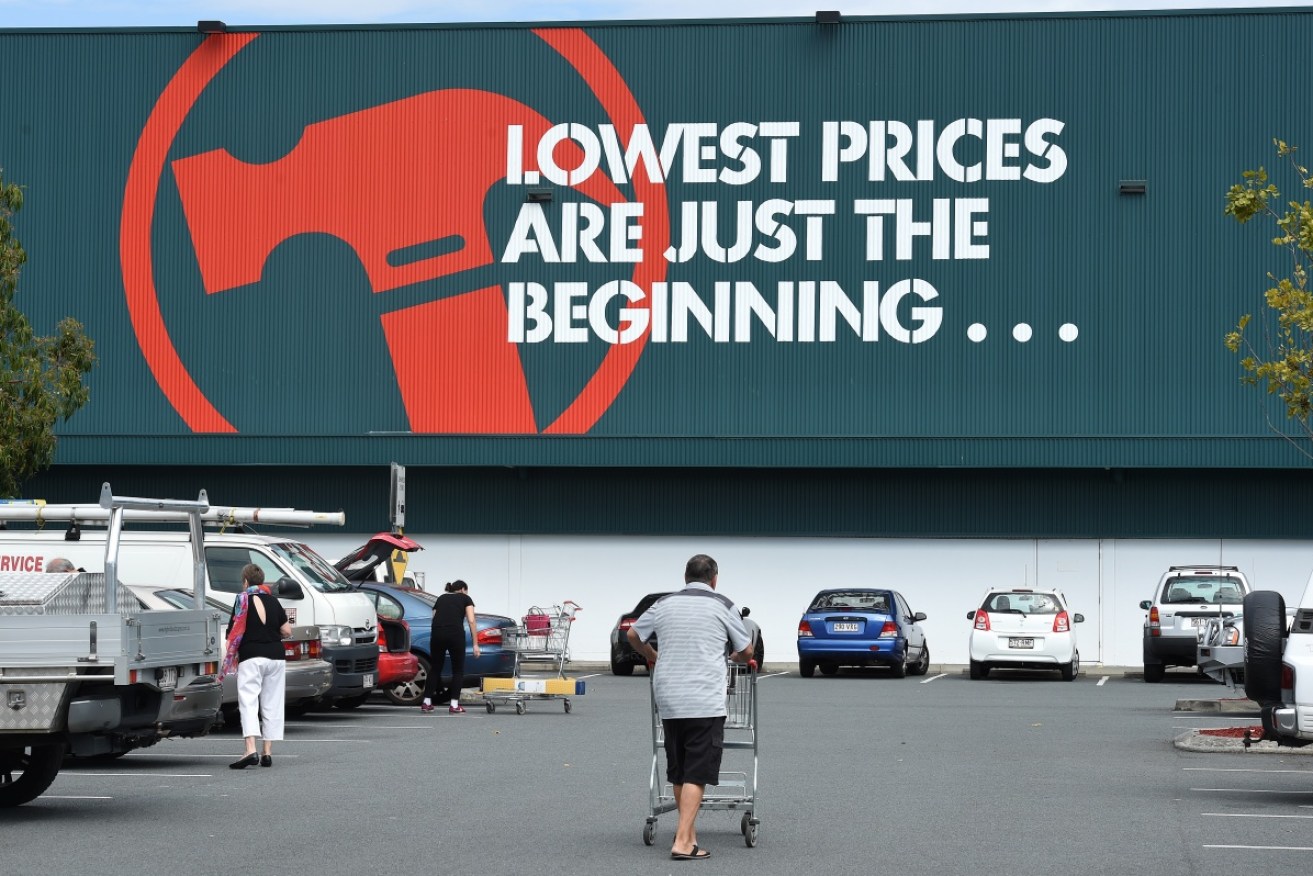The Bunnings UK fiasco again shows Australian management is second rate


Bunnings is restricting purchases of a host of items amid the coronavirus outbreak. Photo: AAP
Australian management again has been tested away from its cosy home patch and again failed. This time it’s Wesfarmers sticking up its hand as second rate, abandoning its attempt to establish Bunnings in the UK and blowing a billion dollars or two in the process.
It’s a depressingly familiar story – masters of their small universe exposed as inadequate when they attempt to play on a bigger stage.
Did I say “Masters”? What’s especially surprising about Wesfarmers’ UK failure is that they had witnessed very close up just how to fail at a foreign hardware expansion. Woolworths and its American partner, Lowes, failed even more expensively to roll out the Masters chain here, pulling the plug in 2016 – the same year Wesfarmers invaded Britain.
The Bunnings team followed and confronted Masters every step of the way here, but learned nothing from the experience about the need to understand local conditions and culture. Just as Lowes management apparently didn’t grasp that the seasons were upside down in Australia, Wesfarmers thought it knew everything Brits didn’t about what they want in hardware.
Hubris is a great leveller.
An extra irony is that Australian retail is awash with British executives, yet doesn’t have talent to know what the British want.
Wesfarmers is only the latest of a long line of Australian companies to turn home with their tails between their legs after discovering they weren’t as good as they thought.
Of the top 10 ASX industrial stocks by market capitalisation, only three can claim international success, four have failed and the other three are probably fortunate to have not tried much, having managed to make a mess of enough things at home. There are plenty of other examples further down the list.
Yet a common excuse for skyrocketing executive salaries here is that we have to be “internationally competitive” in hiring the best talent on the planet. The results say only a minority of the expensive hires prove to be internationally competitive themselves.
But it’s not just the fault of management and the boards who hire and are meant to supervise them. Weak boards and the big investors with short-term goals who pressure them are also responsible.
The two biggest recent international failures by Australian companies are Wesfarmers in the UK and the ANZ bank in Asia. Wesfarmers is pulling the plug after just two years. ANZ’s grand regional ambitions only lasted the term of a single CEO when success in Asia takes decades to build.
The message from our big institutional investors to boards is that they don’t like the risk of expanding overseas. Yes, investment managers also tend to be rewarded too much for short-term performance and lack the stomach – or incentives – to go the distance.
That lack of investment patience is shown up by the tendency of private companies to investment more in their future than public companies.
ANZ, Wesfarmers and, for that matter, Woolworths with Masters all showed a lack of ticker as well as the talent to fix their problems. Short-term thinking by a bonus-driven executive class, impatient investors and weak boards meant it was easier to write off the billions instead. Besides, there’s always another CEO coming along who’s happy to let the blame rest on his or her supervisor.
There’s an old corporate joke that’s more true than false:
The new CEO finds a note on his desk from the departing CEO telling him that two envelopes have been left for him in the safe, marked 1 and 2. Should the newcomer run into trouble with the board, open envelope 1 for instructions. Should more major trouble occur, open envelope 2.
Soon enough, there’s trouble. The CEO opens the first envelope in which there is a piece of paper with just two words: “Blame me.”
He does and the company moves on. In time though, more difficulties crop up and the CEO is under pressure. He opens the second envelope. This time there three words: “Prepare two envelopes.”
It’s par for the course for the new CEO to clear the decks, to write off and down all that can be. If nothing else, it provides upside for his future bonuses.
Thankfully, we do have some internationally successful industrial companies. (Our resources countries have always effectively been international and thus are used to the game.)
Of the top 10, CSL is now ranked third with market capitalisation of $83 billion. It is an absolute star. Macquarie Group, ranked seventh on $39.5 billion, also is an international success. And Transurban in tenth place on $26 billion has made toll roads work overseas.
Of the others, CBA and Westpac are one and two. Both do so ridiculously well at home that they haven’t bothered to venture far. Nonetheless, Westpac nearly went broke in the 1990-91 recession and CBA’s management failings are being laid bare by the Royal Commission.
ANZ in fourth place has already been dealt with. NAB in fifth place had very expensive disasters in both the US and UK that it has and is running away from. Wesfarmers is in sixth place, Woolworths eighth and Telstra ninth. Telstra has from time to time tried international expansion that has come to nought or little – and it also is having plenty of domestic trouble now.
And that’s just the top 10. So spare me the idea that this nation’s CEOs are especially wise and talented folk worth their exorbitant salaries. Most of them aren’t.








